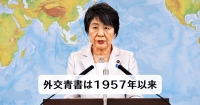The Chinese government, which has been giving "we-don't-comment-on-other-countries'-internal affairs" responses to questions about the United States presidential election, has reacted, albeit unofficially, with an almost audible sigh of relief after Joe Biden was declared the winner over incumbent Donald Trump.
However, China has held back while American friends and allies such as Canada, the United Kingdom, France and Germany and regional countries such as Japan, South Korea, the Philippines, India, Indonesia and Australia congratulated president-elect Biden. China knows that it is neither friend nor ally and thus it would be inappropriate to thrust itself into the front to congratulate the new American leader.
But this doesn't alter the fact that the U.S. relationship with China is the most important in the world. And China has made clear its hope that a change in administration would lead to an improvement in the bilateral relationship.
Such a hope was officially voiced two days before the designation of Joe Biden as president-elect, by Vice Foreign Minister Le Yucheng, who called on "the new American administration" to "meet the Chinese side halfway" and move bilateral relations forward "along the right track."
Chinese state media have been quoting academic experts who voiced cautious optimism about greater moderation on the part of Washington, if not a change in policy.
Global Times, a nationalistic tabloid, in a commentary Sunday, pointed out that "Biden's top priority when he takes office is curbing the epidemic" and "it will be possible for China and the U.S. to shift from fierce confrontation to pragmatic cooperation when it comes to fighting the epidemic."
Actually, healthcare is a natural area for cooperation. China is already America's biggest partner on scientific research and the coronavirus is something that scientists from both countries should be able to work together on.
While the political atmosphere has changed drastically in the last four years and long-term competition for global leadership between the two countries is inevitable, a Biden administration is likely to see professionalism and stability replace the unpredictability that has characterized the Trump administration.
However, Biden will be tough on China, a position shared by both major U.S. political parties.
Even Le, the Chinese diplomat, acknowledged "disagreements between the two countries" while arguing that they also have "broad common interests and space for cooperation."
A Biden administration will take the position that while there are areas of common interest, such as climate change and nonproliferation, differences, particularly over human rights, make it extremely difficult to foster friendly relations with China.
Each country will be on its guard when dealing with the other, with neither wishing to be dependent on the other for strategic supplies, including rare earths and semiconductor chips. But there won't be total decoupling.
Biden will also seek to rebuild relations with America's allies and coordinate with them when dealing with China.
In fact, Biden may try to revive the Obama administration's proposed Transatlantic Trade and Investment Partnership (TTIP), which would create a huge partnership between the United States and the European Union, something that China is unlikely to welcome.
Another step would be to rejoin the Trans-Pacific Partnership (TPP), or what is now the 11-nation Japan-led Comprehensive and Progressive Agreement for Trans-Pacific Partnership (CPTPP).
Both TTIP and TPP were abandoned by Trump. U.S. membership in two such trade groupings will put it in a formidable position in dealing with China and help counter China's strategy to place itself at the heart of global trade through "the Belt and Road Initiative."
In his acceptance speech, Biden did not directly address foreign policy. In speaking of foreign affairs, he said that the United States leads "not by the example of our power, but by the power of our example."
Just what kind of example the American elections set was discussed by Hu Xijin, editor-in-chief of the Global Times.
"It is worth noting that in the past, Chinese people cared about the US elections, the main reason being they envied how America could hold such democratic elections," Hu wrote. "But, it must be said, any collective feeling of envy has long dissipated."
"The mainstream view of today's Chinese people is that China and the US are two major countries under completely different conditions," he continued. "Even if some people have admiration for the US elections, their admirations remain just that. They don't think China should follow suit."
That, the editor-in-chief concluded, is because "Chinese people are aware of" how such elections split American society and "how such division could endanger a big country with complex conditions like China."
The message was clear: the troubles of the American elections show that democracy is not suitable for China.
更多精采英文內容,請瀏覽以下網址:www.ejinsight.com























